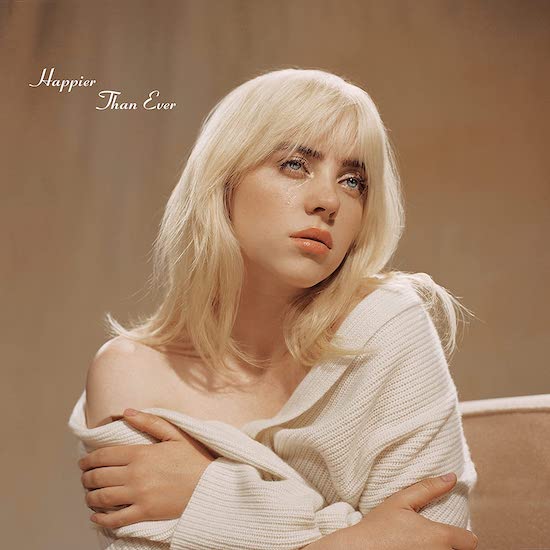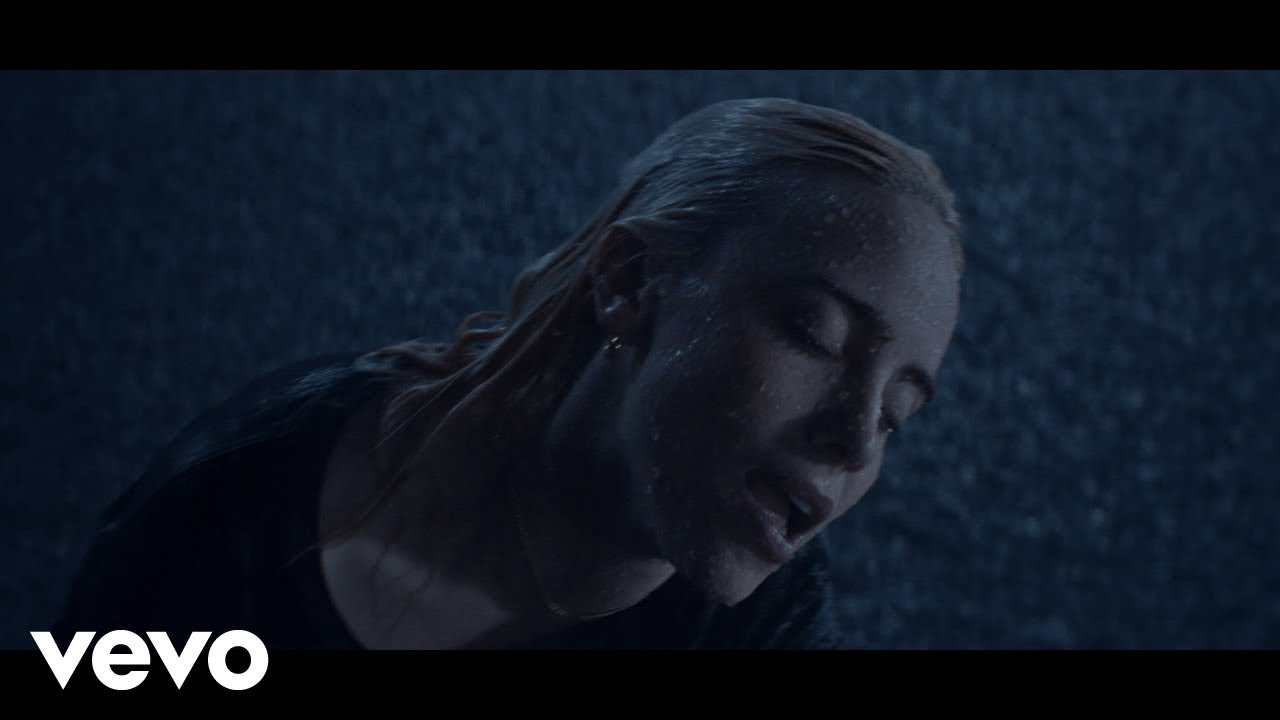It feels fitting at an almost cosmic level that Billie Eilish’s beautifully unnerving second album should be released days after last rites were proclaimed on Simon Cowell’s The X Factor. There is a sense of one era belatedly ending and another beginning. It’s like spring following an ice age where all the mega fauna had Jedward quiffs and crooned like Harry Styles.
The X Factor and Cowell’s perspective on stardom was that the mogul was as influential as the musician. But Eilish’s career stands as a rebuttal of the proposal that the people behind the scenes are as important as the one in the spotlight. She embodies the concept of pop star as auteur. And, if the idea is hardly new, few have inhabited it as persuasively and thrillingly as the nineteen-year-old Los Angeles native.
Happier Than Ever is a record of many layers and nuances. It is primarily a deep dive into the dark side of overnight celebrity and the internet’s industrial-scale objectification of young stars. But the project is also is a study in loneliness and a baroque, at times almost gothic, picking apart of adolescent melancholia. It’s Lindsay Anderson directing an episode of HBO’s Euphoria. Or Edward Gorey illustrating Judy Blume.
You can dance to it, sing to it, drive too fast to it. Yet Happier Than Ever works best without outside distraction, so that the textures both of Eilish’s voice and of the rococo production can be fully appreciated.
When Eilish emerged in 2016 with the single ‘Ocean Eyes’ and the follow-up 2017 EP, Don’t Smile At Me, it was obvious she represented some kind a break from the tropes of mainstream pop. Amid the disembodied beats and guttural grooves, she and producer (and older sibling) Finneas sounded more indebted to early Nine Inch Nails than to the Max Martin school of turbo-charged chart stompers.
There is nothing at all wrong with turbo-charged chart stompers. Amid the recent outpouring of support for Britney Spears, for instance, it has been telling that people are finally giving themselves permission to admit to liking her music. But Eilish was coming from somewhere else. The defining quality of her work was its razor-edged ennui.
Those barbs continue to glitter on Happier Than Ever. However, she takes a new direction with her lyrics, no longer tapping her fear of monsters under the bed or anxieties about insomnia. Now the monster is stalking her on Instagram or resides in the scrum of paps lying in ambush whenever she leaves the house.
“I didn’t change my number,” she whispers on the song of the same name, sounding like a Warhammer 40K Billie Holiday. ”I only changed who I believe in.” She could be addressing any number of people. Her ex, Brandon Adams. The fans whose adoration has becoming increasingly possessive. Or maybe she is talking to the whole world – the people who know her only from Instagram and from gossipy websites.
Happier Than Ever is several records in one. At moments, it lands with a crushing hush, Eilish’s vocals folded into layers of ghost-like piano and percussion. Yet when it rouses itself from this troubled slumber, it hits like forked lightning. ‘Billie Bossa Nova’, for instance, is a finger-clicking ghost-train ride (though the sentiments are gooey by her standards: she seems to be addressing a prospective love interest). And on ‘Oxytocin’ she radiates a nightmarish menace. It’s half banger, half bad dream from which you cannot awaken.
Asked to explain what set stars such as Lana Del Rey, Lorde, and Taylor Swift apart, producer Jack Antonoff recently told the Irish Times that it came down to their willingness and ability “to tell a hyper-personal story in a hyper-personal way”. Eilish has that gift too and on Happier Than Ever her diary entries are variously raw and unnerving.
Simon Cowell, among other moguls, would never have allowed her to venture to those places. And that perhaps goes to the heart of Eilish’s appeal. She’s made a big shiny pop LP that also chronicles the experiences of a teenager on an emotional downward spiral and wondering when and if they will see daylight again.



